Co-author: Olivia Fairhurst
Credit cards are a handy tool for paying an unexpected bill, building a credit report or buying goods online. However, when you’re stuck in a cycle of credit card debt, it’s all pain and no gain.
Credit card debt is easy to fall into; one minute you’re using it for stress-free shopping, the next you’re drowning in accumulated interest, unsure of how to start paying off debt. Spotting signs you are heading into unmanageable credit card debt can help you find a way to get back on track.
Tell-tale signs of unmanageable credit card debt:
- You view your credit card limit as spending money or a magic piggybank, while you put paying off debt on the backburner. Too much credit card debt, cash loans, personal loans, or unsecured loans, isn’t a good thing. Credit card debt has become normalised in the 21st century, yet plenty of average earners have no credit card debt at all. You might even know some.
- You buy on impulse, an easy way to get yourself into credit card debt if you’re not careful. Good personal finance management habits include budgeting or have spending plans in mind. One way to avoid impulses to buy on a credit card is to keep a spending diary for a month and analyse how you spend your money.
- You think you’ll win the lottery. It’s a gambler’s mentality to believe that you’ll find a way out of paying off debt without putting the hard yards in. If you think the answer to eliminating credit card debt is that you’ll win Lotto, or inherit money, you’re wrong. The only guaranteed way to get out of credit card debt is to change your spending habits. Even Lotto winners can end up back in debt again.
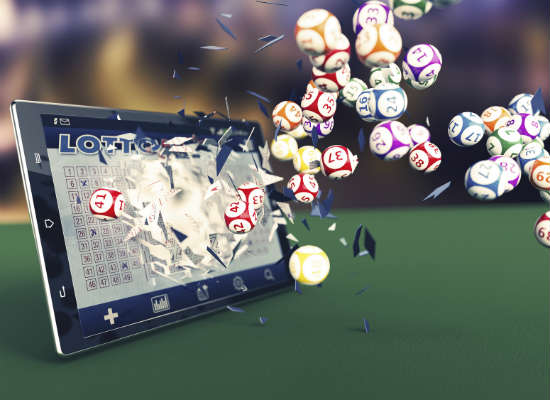 4. You use cash advances on your credit card when you run out of money. Cash advances can be incredibly expensive. You’ll be charged a fee, as well as full interest, from day one. It’s a bad habit to use cash advances and a red flag for out of control spending.
4. You use cash advances on your credit card when you run out of money. Cash advances can be incredibly expensive. You’ll be charged a fee, as well as full interest, from day one. It’s a bad habit to use cash advances and a red flag for out of control spending.
5. You’ve missed a minimum payment. If you can’t pay the minimum monthly payment, get budgeting advice quickly. Budget counsellors can help make the impossible possible by advising you how to streamline your finances and to start paying off debt. If you can’t make credit card payments this may also mean you’re not on the right credit card for you so definitely look into other options.
6. You don’t have a plan. Failing to plan is planning to fail. If you have no plan for paying off debt, you’re in trouble. One good way to do this planning is to write down all your weekly expenses and evaluate how much you can pay off your credit card each week. But make sure your card doesn’t have extra payment fees. You may be better off transferring balances to a more flexible credit card if this is the case.
7. You lie to yourself. The credit card debt may be your husband, wife, or ex’s fault. You fool yourself into believing you really need things. Your situation is somehow “different” than other people’s. You had to buy XYZ because it was a “bargain”. Or you trick yourself into thinking you can “afford” something by using your credit card. These are some of the myriad of lies we tell ourselves, to justify our spending. Watch your way of thinking and catch yourself out then find alternatives for those unnecessary costs.
8. Letters remain unopened. If you can’t face opening your credit card bills then this is a bad sign, something needs to change.
9. You have transferred your balance more than once. Balance transfers are a great way to pay off a credit card debt at a lower interest rate. If you have not reduced the credit card debt by the time the first transfer period ends – which is usually six months – you probably need to ask yourself why
10. You worry constantly. If your credit card debt causes you anxiety, then it’s time to take action and find a way to start paying off debt.
5 Top Tips for Getting Out Of Credit Card Debt
| Pay more than the minimum | 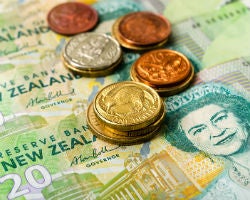 |
Minimum payments will generally go to interest and not make much of a dent in your actual balance. |
|---|---|---|
| Lower credit card interest rate |  |
Unless you are on a super-low rate already, you could probably save money by changing your card. Compare rates on Canstar’s database. |
| If you have multiple cards, deal with one at a time | 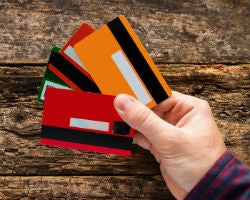 |
You generally want to pay off the card with the highest interest rate, or the smallest balance. |
| Make use of your savings | 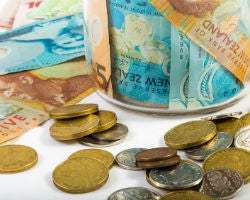 |
Remember any interest you would earn on those savings would be much smaller than the money you’d end up paying in interest on your unpaid card balance. |
| Examine spending habits | 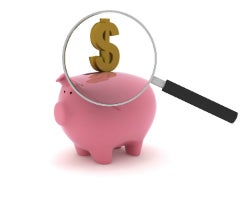 |
Pick apart your monthly spending and look for unnecessary spending, or areas where you can cut back. |
Extra support for paying off debt
Finally, if you need some motivation to cut your credit card spending, leave your little plastic friend at home. Only take it out for absolutely essential purchases. Or, even better, put the card in a container of water and freeze it.
New Zealand has free in person budget advice centres in most towns. Visit Building Finance Capability’s website to find out where your nearest centre is. Or, phone them for free on 0800 345 123.
Want more finance tips?

Sign up for free to receive more news and guides, straight to your inbox.
By subscribing you agree to the Canstar Privacy Policy.



Share this article